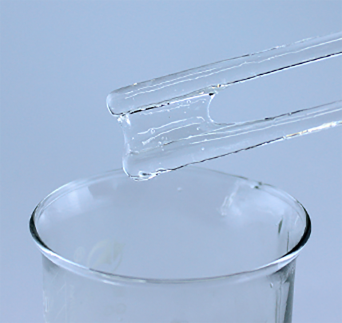
Aug . 19, 2024 12:01 Back to list
Understanding the Applications and Benefits of Methyl Hydroxyethyl Cellulose in Various Industries
Understanding Methyl Hydroxyethyl Cellulose (MHEC)
Methyl Hydroxyethyl Cellulose (MHEC) is a non-ionic cellulose ether that has gained significant attention in various industrial applications due to its unique properties and versatility. Derived from natural cellulose, MHEC is modified through a chemical process to enhance its performance in a range of applications, including construction, pharmaceuticals, and personal care products.
Properties of MHEC
MHEC boasts a combination of properties that make it an ideal choice for many formulations. It is soluble in both hot and cold water and forms a clear, viscous solution. This property is essential in applications where clarity is crucial, such as in paints and cosmetics. MHEC also has excellent water-retention capabilities, which is particularly beneficial in construction materials like mortar and plaster, where moisture retention is vital for achieving proper curing.
Additionally, MHEC exhibits non-ionic characteristics, which means it does not have a charge. This trait reduces the risk of interactions with other charged substances in a formulation, leading to improved stability and performance. Its ability to create thickening and stabilizing effects at low concentrations makes it a cost-effective additive for various products, allowing manufacturers to achieve desired viscosity and texture without significantly increasing the formulation costs.
Applications of MHEC
methyl hydroxyethyl cellulose mhec

1. Construction Industry MHEC is widely used in the formulation of adhesives, tile grouts, and various mortars. Its water-retention properties help prevent premature drying, ensuring that the material adheres properly and performs effectively. The thickening effect of MHEC also aids in preventing the settling of solid components in these mixtures, leading to enhanced product stability.
2. Pharmaceuticals In the pharmaceutical industry, MHEC serves as a binding agent and thickener in tablet formulations and suspensions. Its compatibility with a range of active ingredients and excipients makes it an invaluable component in the formulation of medicines. Moreover, MHEC is known for its ability to form gels, which can be utilized in controlled drug delivery systems.
3. Personal Care Products MHEC is a common ingredient in personal care products such as shampoos, conditioners, and lotions. It acts as a thickening agent, enhancing the texture and feel of these products. Additionally, its moisturizing properties can improve the skin-hydrating effects of lotions and creams, making them more appealing to consumers.
4. Food Industry Although MHEC is primarily known for its applications in non-food areas, it can also be found in food products as a thickening and stabilizing agent. Its use in food is generally limited to specific products where its unique properties can provide texture and stability.
Conclusion
Methyl Hydroxyethyl Cellulose (MHEC) is a multifunctional additive with a broad range of applications across diverse industries. Its unique properties, such as water retention, thickening ability, and compatibility with various formulations, make it an effective choice for manufacturers seeking to enhance product performance. As industries continue to evolve and demand higher-quality products, the relevance of MHEC is likely to be even more pronounced, solidifying its position as an essential component in modern formulations. As research and development progress, we can expect to see innovative applications of MHEC that further capitalize on its unique characteristics, driving advancements in product formulation and performance across multiple sectors.
-
Versatile Hpmc Uses in Different Industries
NewsJun.19,2025
-
Redispersible Powder's Role in Enhancing Durability of Construction Products
NewsJun.19,2025
-
Hydroxyethyl Cellulose Applications Driving Green Industrial Processes
NewsJun.19,2025
-
Exploring Different Redispersible Polymer Powder
NewsJun.19,2025
-
Choosing the Right Mortar Bonding Agent
NewsJun.19,2025
-
Applications and Significance of China Hpmc in Modern Industries
NewsJun.19,2025







